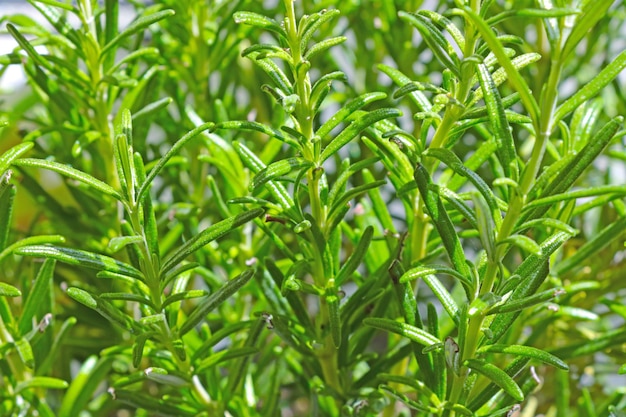What Is Tea Tree Oil?
Tea tree oil is extracted from the leaves of an evergreen shrub called Melaleuca alternifolia. This plant is native to Australia and has been used by Aboriginal people for treating wounds and various skin issues.
Benefits of Tea Tree Oil
Tea tree oil has been recognized as a natural remedy for over a century. The Bundjalung Aboriginal people would crush the leaves to create a paste for skin application and make tea from the leaves to soothe sore throats. Let’s explore how this oil can benefit you today.
Amazing Antibacterial Properties
The antibacterial properties of tea tree oil have been studied since the 1940s. It has been tested against bacteria like Streptococcus pyogenes (strep) and Escherichia coli (E. coli) in labs, showing that it can target and destroy bacterial cell membranes. Tea tree oil might also help combat antibiotic resistance, as bacteria have not shown resistance to it in several experiments.
Healing Anti-Inflammatory Properties
Tea tree oil contains terpinen-4-ol, a compound known for its anti-inflammatory benefits. Research has shown that this substance can reduce inflammation caused by mites that attack the skin and eyes by suppressing the production of pro-inflammatory cytokines.
Surprising Antifungal Properties
Tea tree oil also has antifungal properties, making it effective against fungi like mold, ringworm, and nail fungus. Studies have focused on its ability to combat Candida overgrowth by damaging the yeast cell membranes. Terpinen-4-ol and 1,8-cineole are key components in this antifungal activity.
Unique Antiprotozoal Properties
Protozoa, such as amoebas, are single-celled organisms that can cause infections. Tea tree oil has shown effectiveness in killing protozoa, including Plasmodium falciparum, which causes malaria. This antiprotozoal activity is linked to terpinen-4-ol.
Useful Antiviral Properties
Tea tree oil has demonstrated antiviral properties. Studies have shown that it can reduce the viral load of the herpes simplex virus and inhibit the replication of the influenza virus. Terpinen-4-ol and 1,8-cineole are crucial in these antiviral activities.
The Top 5 Tea Tree Oil Uses
For over a century, tea tree oil has been used to treat various ailments, from eczema to athlete’s foot. While researchers continue to explore its full range of uses, the following benefits have been well-documented.
Improving Your Hair
Tea tree oil is popular for hair care. A study from the Royal Prince Alfred Hospital in Australia found that a 5% tea tree oil shampoo improved dandruff by 41%. It also helps reduce greasiness and itchiness and may suffocate head lice. The National Psoriasis Foundation notes that some people find relief from scalp psoriasis with tea tree oil shampoo. You can buy tea tree oil shampoo or make your own by adding two drops of tea tree essential oil per ounce of your favorite shampoo.
Encouraging a Clear Complexion
Tea tree oil is a common ingredient in skincare products. A study comparing 5% tea tree oil gel to 5% benzoyl peroxide lotion found both effective for acne, with tea tree oil having fewer side effects. You can make your own face wash by mixing two drops of tea tree essential oil with one tablespoon of raw honey, applying it to your face, and rinsing after 5-10 minutes.
Soothing Eczema
Tea tree oil is effective for skin conditions like eczema. Research from Sk?ne University Hospital in Sweden found it comparable to other topical treatments. You can make your own ointment by mixing one drop of tea tree essential oil with 12 drops of a carrier oil like olive, coconut, or jojoba oil.
Getting Rid of Bad Breath
Tea tree oil can help eliminate bad breath caused by bacteria. Studies in India found it significantly reduced oral bacteria. Add one drop of tea tree oil to your toothpaste or two drops to a cup of mouthwash, but do not swallow it.
Fighting Athlete’s Foot
Tea tree oil is effective against athlete’s foot. Studies at the Royal Prince Alfred Hospital showed that a 10% tea tree oil cream was as effective as 1% tolnaftate. You can make your own treatment by mixing one drop of tea tree essential oil with 12 drops of a carrier oil and one drop of oil of oregano.
How to Apply Tea Tree Oil
Always dilute tea tree oil with a carrier oil like jojoba or coconut oil before applying it to the skin. Dermatologists recommend caution for those with sensitive skin, as it can cause irritation. Test it on a small patch of skin first.
Tea tree oil is available in many products, including shampoos, conditioners, lotions, and creams. The essential oil version is versatile and can be added to various products.
Are There Side Effects to Using Tea Tree Oil?
Most uses of tea tree oil are safe and have no serious side effects. However, some people may experience allergic reactions, skin rashes, or irritation. If you notice any issues, stop using it and consult your healthcare provider.
Tea tree oil has many practical uses and is just one of many beneficial essential oils. Consider exploring other essential oils to see how they can enhance your life.



